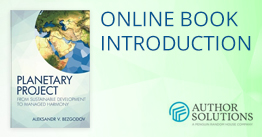The Moral Philosophy of Russian Cosmism as a Forerunner of Planetary Ethics
04/04/2018
Planetary ethics is a product of the Planetary Project, unique in its radical and categorical nature. Its forerunner and spiritual foundation is the legacy of Russian cosmism, which manifested an amazing consonance with the philosophy of the Planetary Project.
Russian cosmism is the worldview of a group of Russian scholars, philosophizing natural scientists, who developed ideas about the upward evolution, the connection of the planet Earth with the whole Universe, the need for human expansion into space, victory over death, chaos and entropy. Russian cosmism is the spiritual rebellion of a man and life that found its realization in man against chaos, finiteness, death and limitation. The original combination of science, philosophy, poetry, seeming utopianism, powerful projectivity and thinking on a global scale made Russian cosmism the undoubted prologue of the modern non-classical scientific picture of the world, global studies and synergetics.
In our opinion, a collective definition based on a coherent listing of the main points of its essence as an integral cultural and world outlook phenomenon can be fully justified and useful for understanding Russian cosmism as a unique phenomenon in the history of science, philosophy and spiritual activity. Russian cosmism can be defined as:
- “an integral and synthetically holistic concept of comprehending the World and Man” [1];
- a unique type of world perception based on the idea of the unity of “everything that exists with the Universe, the harmony of a man and the cosmos, as well as the need to continue the productive functions of consciousness in order to achieve the immortality of man and mankind” [2];
- a special attitude to the cosmos and “the perception of the Universe that is scientifically meaningful, emotional and personal or philosophical and heuristic” [3];
- systematic research and interpretation of the principles of scientific, technical, socio-biological, psychophysical directions of human development through the prism of materialistic monism;
- a philosophical theory “in the framework of which the ideas of the moral and physical evolution of man, the transformation of natural and social reality acquire a universal (global) direction” [4].
The thesis on the globalism of cosmism and about cosmism as a prologue of globality, globalism and planetarity in the second half of the 19th century – the first quarter of the 20th century seems to us one of the most interesting and valuable concepts. By the way, it is found in the literature more than once. For example, a quote from the curious modern work “The Noosphere and the Mentosphere” by N.N. Alexandrov: “Russian cosmism is the most vivid manifestation of the new global mentality of humanity (formational mentality). Russian cosmism displays the newest global human mentality and records the beginning of its last mental formation” [5]. Or a similar statement by N.V. Isakova: “Russian cosmism, as a certain orientation of Russian science, philosophy, religion and culture, has become the quintessence of the global world perception and world view expressed in the concepts of 19th and 20th century Russian philosophers and scientists” [6].
From the very beginning, the development of the Planetary Project as a holistic worldview was carried out independently of any external theoretical influences. However, at a certain stage, we realized that the truths that we have discovered and thought through, by virtue of their obviousness, simply could not but excite thinkers of other eras and cultures. Moreover, they could not go unnoticed for Russian scientific and philosophical thought and spiritual quest. The most vivid interpretations of these truths are presented in the teachings of the cosmists. Now, in the context of the Planetary Project, they have received a second life and a new reading, which allows us to speak about continuity.
Few of the Russian cosmists openly talked about ethics; however, moral issues occupied a special place in their works. The key ideas of cosmists are not only rational, but also value judgments. Basically, they are common to cosmism and the Planetary Project:
- universal human integration (called by some cosmists "fraternity" or "kinship");
- synthesis of science and non-scientific forms of knowledge of the world;
- achieving harmony of man, society and nature;
- victory over chaos and entropy;
- reaching the level of active, meaningful and controlled evolution;
- building a planetary civilization on the basis of justice, rationality and kindness;
- space exploration with a view of settling other planets.
Somewhere obviously, somewhere implicitly, but resolutely, the whole paradigm of Russian cosmism is permeated by the awareness of life as the highest value in the Universe. In the axiology of cosmists you can see the categories, principles, images and inferences that will help build a system of planetary ethics. This is important from the point of view that within the framework of the Planetary Project an ethics capable of claiming the role of a planetary is initially positioned not only as a spiritual, moral and ethical basis of a harmonious world view, but also as an applied, practical system of motivation, regulation and adjustment of behavior and activity. Thus, the main task of planetary ethics is practical: to ensure the implementation of that new “Copernican turn” in the consciousness that will allow people to unite for the sake of their species and all nature; to unite in the common cause of global crisis management and solving global problems in the interests of the living and future generations. This means creating an active and self-developing value basis for the planetary type of thinking and behavior, self-determination and interpersonal relations.
Have ideas, obviousness and truths ever had “nationality”? It is unlikely, because if you trust Plato, Hegel and Vernadsky, whose authority in the history of philosophy and science is undeniable, then, the ideas and truths find us, if we know how to contemplate and understand them. However, they do not reveal themselves to everyone either through inspiration, revelation, or insight. More often, they need to be reached by working hard, combining experience, logic and intuition. At the same time, thought always speaks with the thinker in his or her own language, in the language of their nation, environment, and time. Martin Heidegger’s Sprache spricht’s poignant statement (which literally translates as “language speaks”) probably means that language becomes an intermediary between consciousness, truth and culture. And that means ideas have roots. By their roots, the ideas that help us comprehend the world of truths that are able to grasp the evidence and express it in our language are rooted in the history and culture of the tradition of thinking that the thinker belongs to.
Indeed, it is difficult to deny that each of us as a person begins his development in his own sociocultural context. Another thing is that, unfortunately, the culture of Russia is still associated all over the world either with the “communist” adventure, or with the autocratic-imperial syndrome. Our ideas have nothing to do with either of those. Even within its native culture, it is possible to choose a language. What it will be: the language of blind dogma or the language of free cognition - we decide ourselves, if, of course, we are not afraid.
Having discovered for ourselves the Russian cosmists already at the mature stage of the formation of the Planetary Project, as a scientific and philosophical concept, we discovered the similarity of our thoughts with their ideas. At the end of the 19th and the beginning of the 20th century, cosmists reached the same breadth of views on the united WE-humanity and the principles of the deep relationship between man and the Universe, which we now plan to revive and develop in the movement of the Planetary Project.
- Panin I. Vzlet russkogo kosmizma po Deminu (The Rise of Russian Cosmism by Demin). www.stihi.ru
- Suslov A.V. Nravstvennye osnovaniya russkogo kosmizma (The moral foundation of Russian cosmism). Moscow State University, 1999. irbis.gnpbu.ru
- Demin V.N. Tsiolkovsky. www.rulit.me
- Isakova N.V. Fenomen globalnosti v filosofii russkogo kosmizma (The phenomenon of globalism in the philosophy of Russian cosmism). Krasnodar, 2004. cosmizm.ru
- Aleksandrov N.N. Noosfera i mentosfera (Noosphere and mentosphere). alexnn.trinitas.pro
- Isakova N.V. Fenomen globalnosti v filosofii russkogo kosmizma (The phenomenon of globalism in the philosophy of Russian cosmism). Krasnodar, 2004. cosmizm.ru









